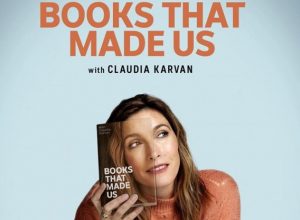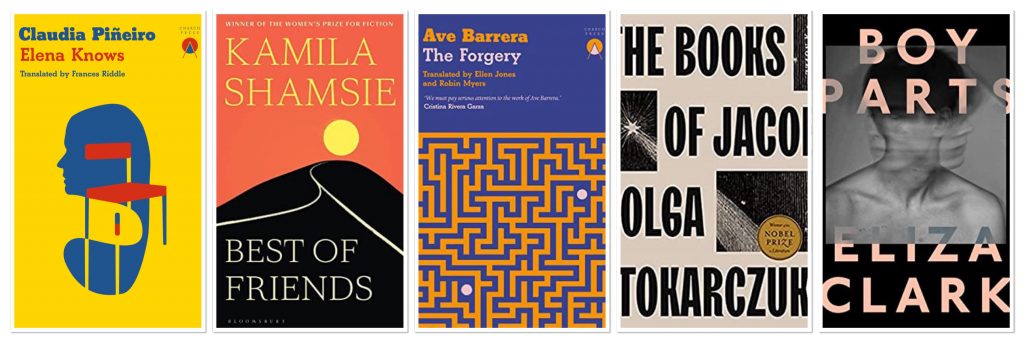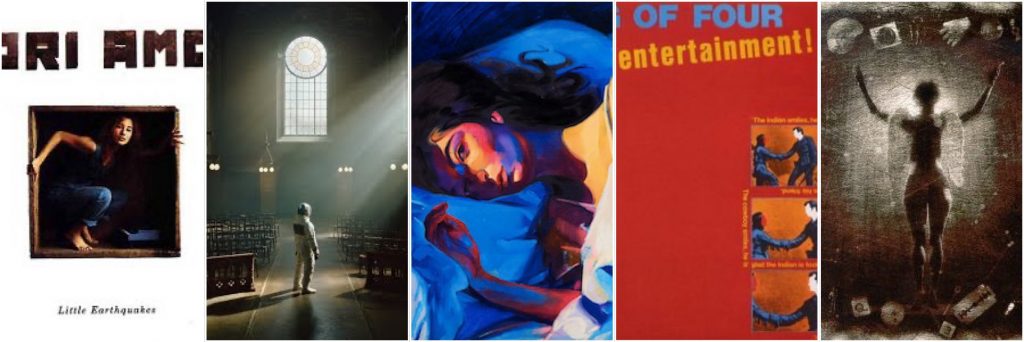 The Australian Broadcasting Corporation once aired a three-part special called The Books That Made Us. In this series acclaimed actor Claudia Karvan looked at the books that best defines our nation, Australia, under three topics: People, Place and Power. With over twenty books being used to form the Australian identity. This was a wonderful starting point to exploring Australian literature, I just with there was more.
The Australian Broadcasting Corporation once aired a three-part special called The Books That Made Us. In this series acclaimed actor Claudia Karvan looked at the books that best defines our nation, Australia, under three topics: People, Place and Power. With over twenty books being used to form the Australian identity. This was a wonderful starting point to exploring Australian literature, I just with there was more.
While I am not a big Australian literature reader, I really enjoyed the experience. I know I should read more literary works from my own country; I am just focused on my own niche of literature. I was surprised to discover books I hadn’t heard of before that I want to read, like They’re a Weird Mob by Nino Culotta and Power Without Glory by Frank Hardy.
The series opened with the book that divides the country, a book I absolutely adored, The Slap by Christos Tsiolkas. I think this was the perfect book to open the series with, just because it is one that caused readers so many different reactions. Though Claudia Karvan telling Christos Tsiolkas she didn’t like the book was a surprise, but I think he handled it well. I am sure he has heard all kinds of criticisms about the book but is probably happy to have written something that gets talked about so often.
I have only read six of the books that were mentioned in The Books That Made Us, and highlights for me include The Slap, Too Much Lip by Melissa Lucashenko and The Yield by Tara June Winch. The other three were The Choke by Sofie Laguna, The Natural Way of Things by Charlotte Wood and Crimes of the Father by Thomas Keneally. I enjoyed the variety of books being talked about and while I will probably never read something like Big Little Lies by Liana Moriarty or Honeybee by Craig Silvey, it did make me question if I should try Puberty Blues by Gabrielle Carey & Kathy Lette.
I had a lot of fun watching this short series and want it to keep going but I also wonder what books define other countries, or even continents. As someone that loves world literature, I began wondering which books I would include to define the continents of the world. Europe has so many well-known pieces of literature, but which English, French or Russian classic would you put on that list? I thought Europe would be the easiest list to create (because it has so much popular literature), but the only book I could think of that should be on a list to define Europe was Older Brother by Mahir Guven (translated by Tina Kover). I would add that book because of the way it explores outsiders trying to integrate into European society, plus it goes into religious and political division in a country, even in a family.
The Books That Made Us was a great series that reminded me that my exploration into world literature should include more works for Australian authors. If I was to pick a few books mentioned in the show to read soon, it would include The Lebs by Michael Mohammed Ahmad, Monkey Grip by Helen Garner, Carpentaria by Alexis Wright and That Deadman Dance by Kim Scott. If you find an opportunity to watch The Books That Made Us I hope you give it a go, I am not sure if it is available outside of Australia anywhere. Nor do I know if it is relevant to many non-Australian readers but I wanted to document my thoughts on this series. The show went on to get two AACTA nominations (the The Australian Academy of Cinema and Television Arts Awards), one for Best Documentary or Factual Program and the other for Best Direction in Nonfiction Television.




